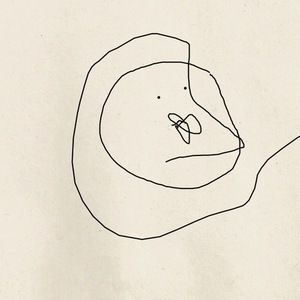I was born female. I'm starting out on pretty firm ground.
But girls aren't supposed to have short hair.
Dig a circular hole around me.
I liked watching "The Smurfs" and "Scooby-Doo" and "The Dukes of Hazard" and "CHiPS" when I was a kid.
But Indians have no claim to American 80s culture.
Dig another hole.
I love Star Wars with the passion of a thousand fiery suns.
But Star Wars is for boys.
Dig another hole.
I love books by Asimov, Herbert, Clarke, Bradbury. I liked Timothy Zahn's first Star Wars sequel books. I subscribed to Analog, Asimov's, and SF&F for years.
But hard science-fiction is not for liberals.
Dig another hole.
I studied physics and astronomy. I love math. I have degrees in electrical engineering. I work in the tech sector where I'm often the only woman in the room.
But women don't like STEM fields.
Dig the holes a little deeper.
I like to paint and draw and dance.
But engineers aren't creative.
Dig the holes a little wider.
I like parties and books by Jane Austen and wine.
But that's not geeky.
Dig them deeper still.
I've played Master of Orion and World of Warcraft, Halo and Portal, Pac-Man and Tetris.
But girls aren't gamers.
Dig them wider still.
I speak Tamil. I know how to wear a sari and cook sambar.
But that's not American.
Turn the holes into pits.
I dated before marriage. I married a white man.
But that's not Indian.
Turn the pits into craters.
I took his last name. I had his child.
But that's not feminist.
Turn the craters into canyons.
I was happy to leave the child and go to work every day.
But that's not motherly.
The canyons grow deeper.
I hate shopping. I like romantic comedies. I hate high heels. I love dressing up.
But that's not ... anything!
The canyons look bottomless.
Now I'm standing on a tiny bit of land, enough to balance on one foot, and staring into the abyss. Everything that's part of who I am is falling away.
typedef void ME;
So to all the lonely, sad [your identities here*] who are feeling marginalized right now, who feel like everything they believe in is being taken away, I have this to say: Guess what?
I KNOW HOW YOU FEEL.
But I am stronger than the abyss.
I can dance on foot and be who I am.
So can you.
And if we stand together, side by side, we'll find ourselves together on level ground, and we can stop shouting at each other across chasms.
*Possible examples:
- white male nerd
- gay conservative
- geeky black woman
- female atheist
- LEGO-loving princess
Related Links:
http://gawker.com/what-is-gamergate-and-why-an-explainer-for-non-geeks-1642909080
http://whatever.scalzi.com/2015/02/17/you-cant-take-back-what-you-already-have/
http://en.wikipedia.org/wiki/Identity_politics
http://www.huffingtonpost.com/lisa-abeyta/when-did-we-let-princess-become-a-bad-word_b_5310586.html
http://en.wikipedia.org/wiki/Third_culture_kid

